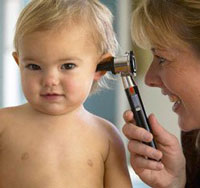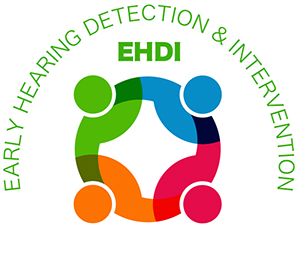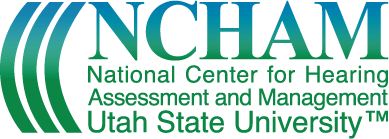((( Early Hearing Detection and Intervention System

Over the past decade, tremendous progress has been made in ensuring that families have access to hearing screening when a baby is born. Approximately 95% of babies now receive a hearing screen shortly after birth and most states now have statutes in place related to universal newborn hearing screening. Much work remains to be done, however, because some infants who do not pass the hearing screening become lost to follow-up or documentation before an audiological evaluation can be completed or critical educational and medical intervention can be provided.
With the goal of ensuring that every child with a hearing loss is identified before 3 months of age and provided with appropriate intervention by 6 months of age, there are a number of EHDI program components that continue to be improved and expanded to better serve children and families. Greater emphasis is being placed on training early childhood education and health care providers to use up-to-date screening methods to identify children with post neonatal hearing loss and to find infants who became lost to follow-up after their newborn hearing screen. Likewise, enhancing the skills and knowledge of audiologists, early intervention specialists and health care providers to work together in a medical home model, providing culturally-competent support to families, is having a positive impact on service quality. Children with hearing loss who receive these services in a timely way are often able to develop language skills on par with their hearing peers. Data management, legislation, financing, and program evaluation are also important elements in creating a sustainable, high-quality EHDI service system that will ultimately make a dramatic difference in the lives of all children with hearing loss.


